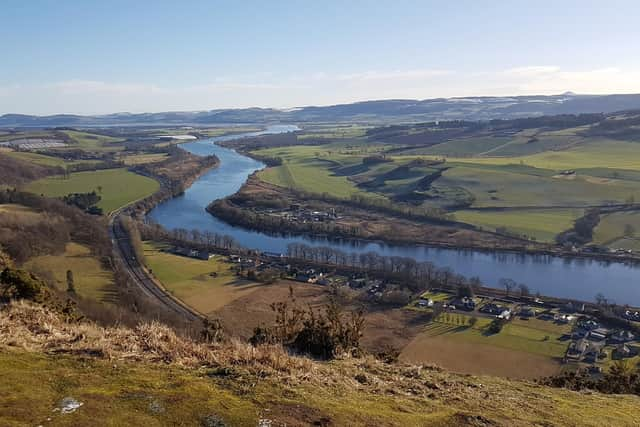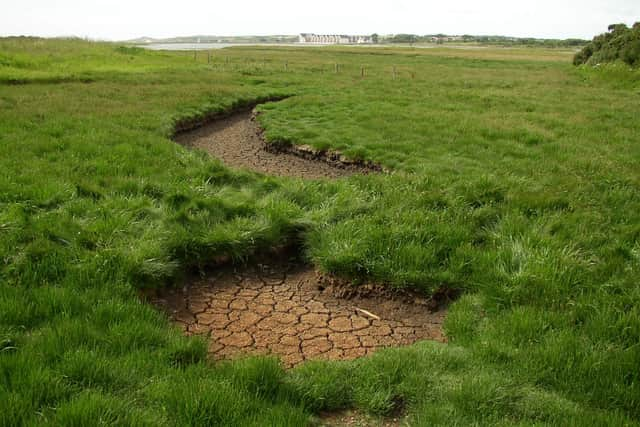Climate change: Scientists urge Scots to cut water consumption amid warning ‘wet’ country could run dry
Immediate action must be taken to tackle potential water shortages in Scotland, experts are warning.
The call comes in a new report from the University of Dundee, which highlights the need for behaviour changes around water usage to ensure the country is more resilient to periods of low rainfall driven by climate change.
Advertisement
Hide AdAdvertisement
Hide AdResearchers say the combination of prolonged dry periods, brought on by weather changes, and an increase in water usage are leaving the nation vulnerable. And the risk of shortages is exacerbated by complacency linked to Scotland’s reputation as a wet country.
“There is a widespread misconception that water resources are always abundant across Scotland because it’s always raining, and this has led to this precious resource being largely undervalued,” said study leader Dr Sarah Halliday, reader at the university’s Division of Energy, Environment and Society.
“However, we are experiencing more extremes in our weather, and while this can result in very intense rainfall events, it can also lead to much longer periods of lower rainfall. Added to this we are also seeing the demand for water increase, which combined with periods of reduced available water is increasing our national vulnerability to water scarcity.”
Scotland’s mild, wet climate can claim an important role in the success of the nation’s tourism and leisure industries, its renowned food and drink and renewable energy sector. But all this could be at risk as the impacts of climate change increase, according to the hydrologist.


Although the climate has been getting damper as well as warmer overall, rainfall patterns have become much more erratic. Summers are becoming hotter and drier and winters milder and wetter, with an increasing frequency of both droughts and flash flooding.
“With these impacts set to become more severe and widespread as climate change continues and water demand varies, it is critical we take proactive action now,” Dr Halliday said.
She said water scarcity was already being felt across the land. In recent years there have been situations when water supplies had to be rationed, particularly during droughts in 2018 and 2022.


Protective measures saw farmers blocked from taking water for irrigating crops and whisky distilleries forced to stop production. Local authorities even had to deliver emergency bottled water to homes where private systems had run dry. Fish died in rivers where flows fell too low.
Advertisement
Hide AdAdvertisement
Hide AdThe amount of water used by a typical domestic customer in Scotland has also risen, to around 180 litres a day – “significantly higher” than in other parts of the UK and Europe, according to the report.
The report, published by Scotland’s Centre of Expertise for Water, based at the James Hutton Institute, sets out a range of recommendations to improve management of water resources and help safeguard supplies.


Net zero secretary Mairi McAllan has welcomed the research. “This isn’t only an issue for government and the water industry but for the whole of society,” she said.
“This study rightly highlights the importance of behavioural change and we all have a part to play in protecting this precious resource from the effects of climate change by using water more responsibly.”
Comments
Want to join the conversation? Please or to comment on this article.